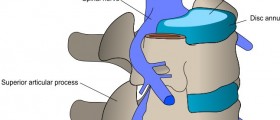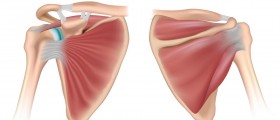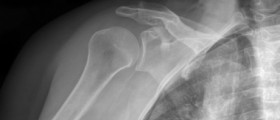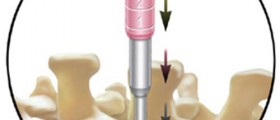Loading...
Loading...
Loading...
I had a second cervical fusion May 29, 2019. This time I was fused from C2 to T2. I am also fused from S1 to T12. I am having so much pain now that I am having a really difficult time sleeping. I am hurting severely between my shoulder blades and my right shoulder hurts and down my right arm. I am also hurting in the middle of my back around my bra strap area into my rib cage. The one good thing from having the cervical fusion, I no longer have the migraines I have had for years. I do get these extremely sharp pains in my neck randomly all throughout the day and night that will just make me stop dead in my tracks because of the pain the cause. I have no idea what they are. I am scheduled to see my surgeon on 09/07 for a follow up and I intend to let him know how much I hurt. I am working full time as an office manager, but everyone keeps telling me I need to file for disabililty. I want to finish my schooling for my bachelors degree. I am not ready to stop working. Can anyone make any suggestions?
Loading...
Loading...
Loading...
Loading...
It is important to seek medical attention immediately if you are experiencing severe pain following spinal surgery. You should contact your surgeon or primary care physician right away to discuss your symptoms and determine the best course of action.
In the meantime, here are some steps that you can take to help manage your pain:
- Take pain medication as prescribed: Your doctor may have prescribed pain medication to help manage your pain. It is important to take this medication as prescribed to help manage your pain.
- Apply ice or heat: Applying ice or heat to the affected area can help reduce swelling and inflammation, which may help to alleviate your pain. You can apply a cold pack or a warm compress to the affected area for 15-20 minutes at a time.
- Practice relaxation techniques: Deep breathing exercises, meditation, and guided imagery can help to relax your muscles and reduce tension, which may help to alleviate your pain.
- Use a body pillow: Using a body pillow to support your body while you sleep can help to alleviate pressure on your spine and reduce your pain.
- Practice gentle exercises: Your doctor may recommend gentle exercises or physical therapy to help alleviate your pain and improve your mobility.
It is important to follow your doctor's instructions and attend all scheduled follow-up appointments to ensure that your recovery is progressing as expected. If you experience any new or worsening symptoms, contact your doctor right away.
Loading...







-Causes,-Symptoms,-Diagnosis,-Treatment_f_280x120.jpg)









